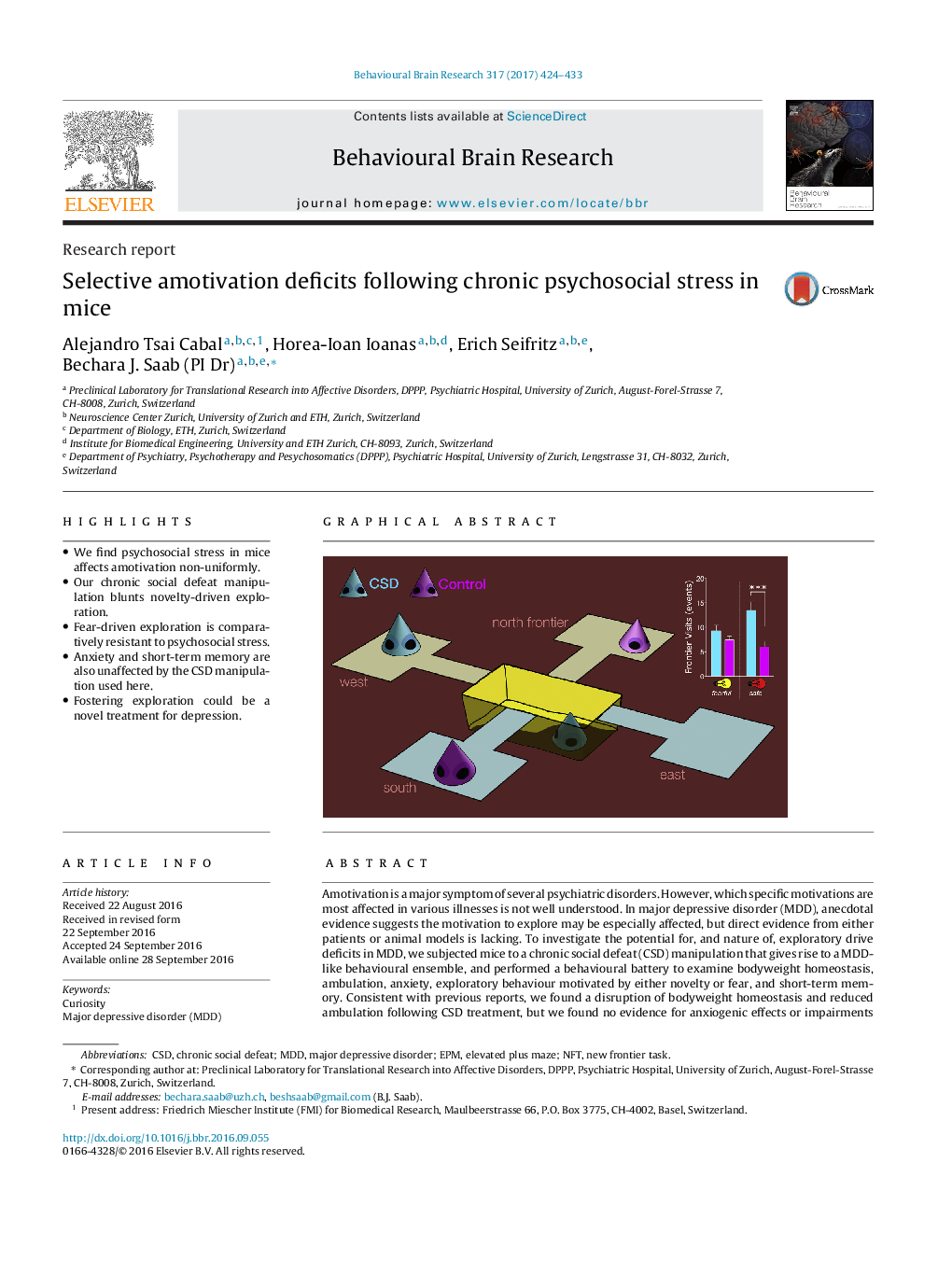| کد مقاله | کد نشریه | سال انتشار | مقاله انگلیسی | نسخه تمام متن |
|---|---|---|---|---|
| 4311981 | 1612916 | 2017 | 10 صفحه PDF | دانلود رایگان |
• We find psychosocial stress in mice affects amotivation non-uniformly.
• Our chronic social defeat manipulation blunts novelty-driven exploration.
• Fear-driven exploration is comparatively resistant to psychosocial stress.
• Anxiety and short-term memory are also unaffected by the CSD manipulation used here.
• Fostering exploration could be a novel treatment for depression.
Amotivation is a major symptom of several psychiatric disorders. However, which specific motivations are most affected in various illnesses is not well understood. In major depressive disorder (MDD), anecdotal evidence suggests the motivation to explore may be especially affected, but direct evidence from either patients or animal models is lacking. To investigate the potential for, and nature of, exploratory drive deficits in MDD, we subjected mice to a chronic social defeat (CSD) manipulation that gives rise to a MDD-like behavioural ensemble, and performed a behavioural battery to examine bodyweight homeostasis, ambulation, anxiety, exploratory behaviour motivated by either novelty or fear, and short-term memory. Consistent with previous reports, we found a disruption of bodyweight homeostasis and reduced ambulation following CSD treatment, but we found no evidence for anxiogenic effects or impairments in short-term memory. Surprisingly, we also observed profoundly delayed and diminished exploration of novel, safe space following CSD, while exploration motivated by fear remained intact. These results extend our knowledge of the behavioural phenotypes in mice resulting from CSD by homing in on specific motivational drives. In MDD patients, reduced exploration could compound disease symptomatology by preventing engagement in what could be rewarding exploration experiences, and targeting deficits in the motivation to explore may represent a novel avenue for treatment.
Figure optionsDownload high-quality image (105 K)Download as PowerPoint slide
Journal: Behavioural Brain Research SreeTestContent1 - Volume 317, 15 January 2017, Pages 424–433
